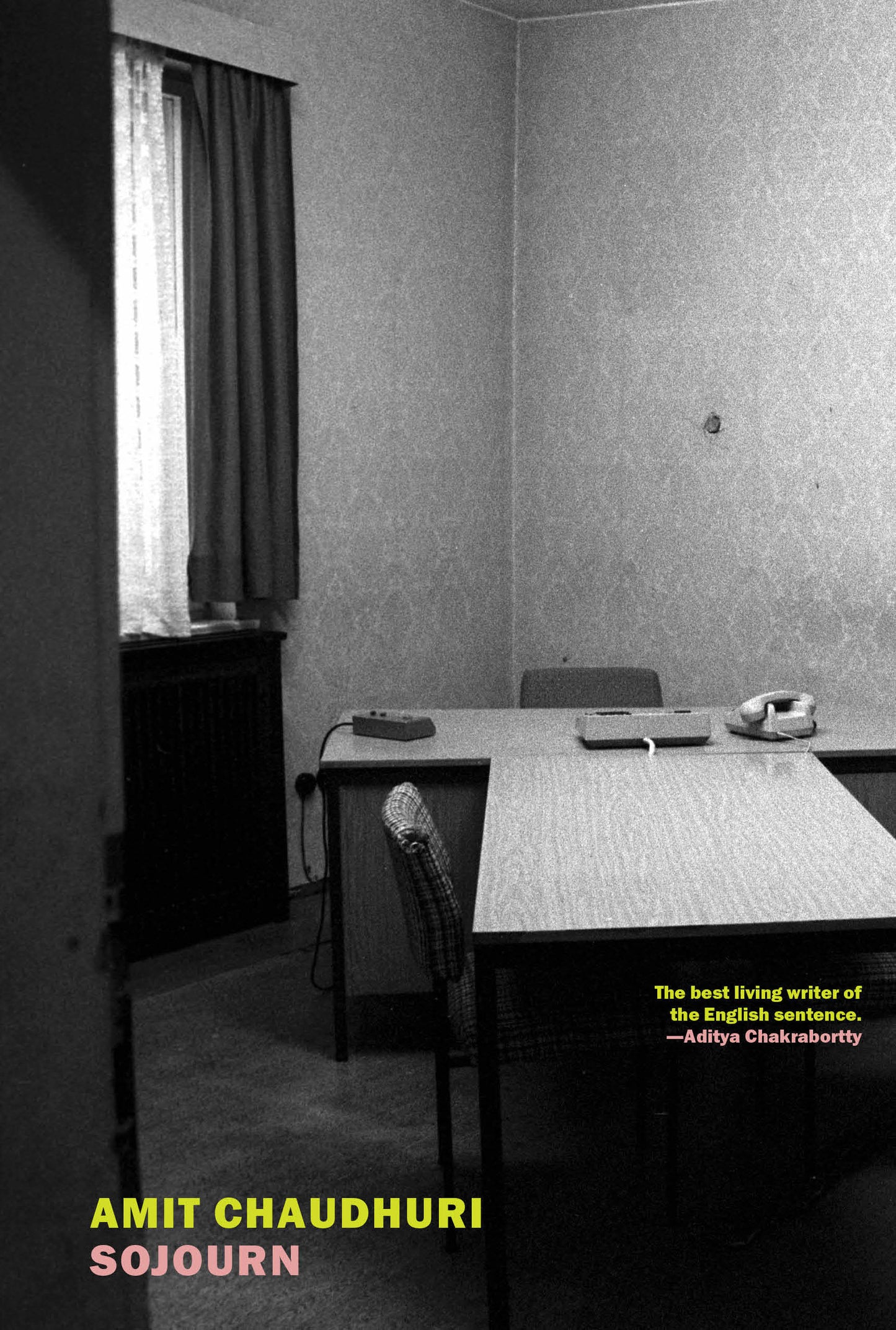At the bottom [of my night shelf], saved for a day when I can savor it, [is] Amit Chaudhuri's Sojourn. Everything he writes is, for me, an event.
—Nicholas Dames, Shelf Awareness
Amit Chaudhuri--novelist, poet, essayist, musician--dexterously expands the quotidian into philosophical, sociopolitical and existential ruminations in Sojourn, a sparse narrative with undeniably dense resonance.
—Terry Hong, Smithsonian Bookdragon
In Sojourn, the narrator’s attempts to negotiate Berlin give rise to absurdist humour...he becomes so absorbed in the city, the immediacy of its history, that his identity becomes increasingly irrelevant...Sojourn is interested in our relationship to the history we are living through, conscious that no one is fully aware of living in an historical epoch, perhaps as fictional figures can’t know they are in a story.
—Alex Harvey, London Review of Books
Disorientation arrives in the very first line of Sojourn and percolates through this short, memorable book. . . It is 2005, and the unnamed narrator, an Indian writer like the author, is a visiting professor at a university in Berlin . . As winter progresses, and the days grow emptier, the narrator begins to crumble inwardly.... Mr Chaudhuri’s writing, limpid and sparse, neatly illustrates this struggle to navigate the inner life: the fight to hold onto a fragile sense of self that can quickly disintegrate, as the surrounding world remains unperturbed, moving indifferently forward and away.
—The Economist
Sojourn has [an] impressionistic tone – everything feels dreamlike, illusory and yet attentively described.
—Edward Docx, The Guardian UK
Mr. Chaudhuri’s fictional world too seems readily fathomable. It is outwardly calm, after all, and its inhabitants tend to drift back and forth on slow narrative tides. . . . There is little action and only muted suspense, yet in each case the habitually sedate pace becomes oddly hypnotic. It is the lyrical precision of Mr. Chaudhuri’s writing, however, that truly holds us fast. Scenes of everyday life, beautifully delineated, repeatedly conjure up a shimmering present in which we are held spellbound. . . . Mr. Chaudhuri’s slim new novel, Sojourn, maintains a similarly persistent grip.
—Anna Mundow, Wall Street Journal
A masterful writer in his own subtle, thoughtful, demanding genre.
—Kirkus starred review
The Indian writer and musician Amit Chaudhuri is one of modernism's most eloquent contemporary champions. . . [In Sojourn] the elegant suggestiveness of the writing, its intelligence and perceptiveness, keeps one turning the pages
—Nikhil Krishnan, Daily Telegraph
Sojourn is a stranger, altogether more destabilising novel than anything Chaudhuri has written before. . . . Chaudhuri is one of the most consistently interesting writers working today. You get the feeling that with each book he has to begin again, reconfigure from the ground up what he wants the novel to be and to do. It’s this radical questioning that makes him such a consistently engaging writer, and what makes this novel so memorable. I’ve read it twice and I still don’t know what Sojourn is really about. But I do know I’m still thinking about it.
—Jon Day, Financial Times
Chaudhuri is masterful at showing the effect Berlin has on the narrator. . . . we are absorbed by the 130 pages of text and its invitation to read between the lines.
—Mika Ross-Southall, The Spectator (UK)
I love Sojourn's evocation of autumnal Berlin, through which a stranger drifts and undergoes a kind of disintegration. This is a mysterious, subtle, haunting novel.
—Chris Power
Sojourn is just stunning. I see in its DNA a little bit of Ishiguro's mighty Unconsoled, but distilled. It's really a piece of music . . . Reading it is like going into a trance.
—Neel Mukherjee
The perfect kind of strange little book to lead us into fall.
—Emily Temple, Lit Hub
Where most of us can barely trace our own footprints in the mass of moments that are the stuff of experience, numerous and storyless as grains of sand on a beach, Chaudhuri delves in masterfully to lift out arcs, moods, treasures.
—James Meek
The best living writer of the English sentence.
—Aditya Chakrabortty
Amit Chaudhuri has, like Proust, perfected the art of the moment . . . [he] is a miniaturist, for whom tiny moments become radiant, and for whom the complexities of the fleeting mood uncurl onto the page like a leaf, a petal.
—Hilary Mantel
I find most moving in Chaudhuri’s writing those moments when his brilliance at literary transfiguration enacts not literary mastery but instead seems to issue from uncertainty, exile, elegy, absence, the premonition of loss.
—James Wood






